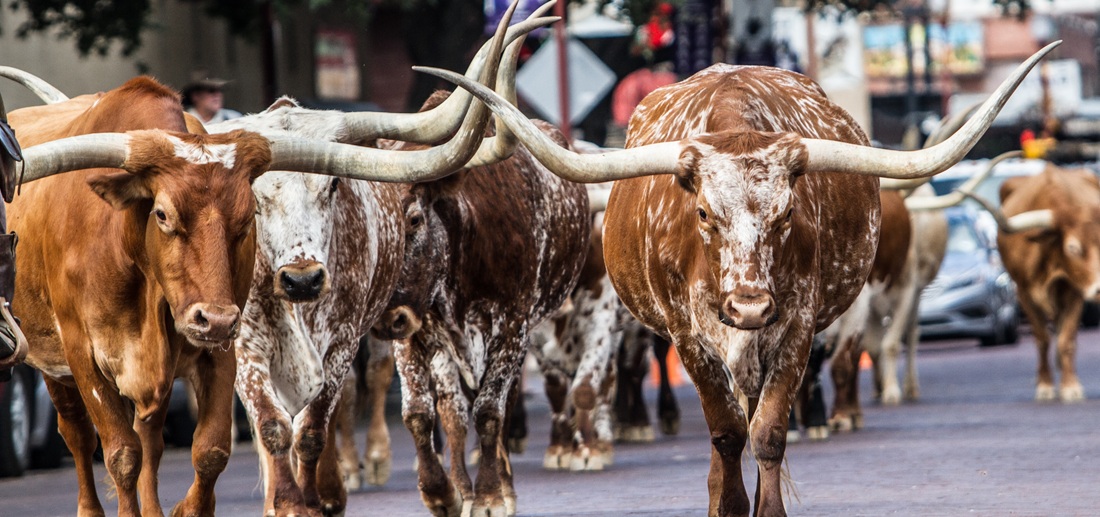
India becomes top importer of Brazilian bovine genetics
Apr, 02, 2025 Posted by Sylvia SchandertWeek 202514
The zebu breed foundational to Brazil’s cattle industry is finding its way back to India through rising exports of Brazilian genetic material. Last year, Alta Genetics Brasil exported 40,000 doses of semen aimed at enhancing the milk productivity of cattle in India, the world’s leading dairy producer. This year, Geneal Genética e Biologia Animal is set to make its first embryo exports to India.
“Indians acknowledged the remarkable genetic improvements achieved with zebu in Brazil and now want to enhance their dairy herd’s productivity,” stated Raquel Dal Secco Borges, head of international relations at the Brazilian Association of Zebu Breeders (ABCZ).
Raquel Borges is part of Brazilian Cattle, an initiative by ApexBrasil (the Brazilian Trade and Investment Promotion Agency) in partnership with ABCZ. The project aims to secure new markets and strengthen existing ones for increased exports of Brazilian livestock products. The project encompasses 113 associated companies, including Alta, which holds a third of Brazil’s cattle genetic material market, and Geneal.
Brazil’s exports of bovine semen and embryos yielded $6.11 million last year, from $4.7 million the previous year, according to Agriculture Ministry data system Agrostat. Embryo sales saw the highest revenue growth percentage, rising to $1.41 million last year from $818,900, up 73.3%. In weight, genetic material exports totaled 1,450 kilograms, up from 942 kilograms in 2023.
Semen shipments to India posted the highest rise, jumping to $618,900 from $37,600, an increase of over 16 times.
Among Brazilian Cattle’s associated companies, responsible for 80% of Brazil’s cattle genetic exports, India has moved from being the 16th largest importer in 2023 to the top position, ahead of Colombia, Paraguay, Ecuador, and Costa Rica. While Latin American countries remain significant importers, India, Pakistan, and African countries are increasingly importing Brazilian dairy genetics, which comprises roughly 40% of Brazil’s genetic material exports.
“Countries like Pakistan and African nations such as Senegal and Nigeria are even importing live cattle by air from Brazil to enhance smallholders’ herds focusing on daily milk revenue—semen imports are a more cost-effective and logistically favorable option,” said Ms. Borges.
Flávia Roseane Paschoal, Alta Genetics’s foreign trade coordinator, reported that out 24 million semen doses sold by Brazilian centers last year domestically and internationally, 970,000 were exported due to Brazilian genetics’ recognition and market expansion. She highlighted that last year’s export of 40,000 doses of Gir semen to Mumbai, on India’s west coast, was the country’s largest and required approval from a government committee overseeing dairy development.
Alta’s Brazilian unit, holding the second-highest regional revenue in the Canadian multinational company, now is active in 90 countries, completed three smaller shipments of 4,000-5,000 doses each to Indian smallholders and is negotiating embryo exports. “Indians are more demanding than other markets but are keen to improve their dairy herd production with Brazilian genetics,” said Mr. Paschoal.
Geneal plans to export embryos sourced from Gir donor cows at Fazenda Floresta, located in Lins, São Paulo, which specializes in dairy cattle improvement.
Paulo Cerântola, Geneal’s sales manager, said the company has produced 5,000 embryos for export in 2024, with plans to double that number this year. Domestically, the Uberaba-based company, also engaged in cattle cloning, sells over 30,000 embryos annually.
According to the index from the Brazilian Association of Artificial Insemination (Asbia), Brazil produced 20,539,086 doses of semen last year, marking a 6% annual increase. Of this total, 833,276 doses were exported to 31 countries, a near 5% annual decline. Semen imports greatly exceeded exports, totaling 5,741,702 doses last year with a 14% rise. Overall, 26,280,788 doses were traded, reflecting a 7.4% market increase.
Source: Valor International
-
Environment
Apr, 28, 2023
0
Brazil to stick to own laws on commodity exports to EU
-
Ports and Terminals
Nov, 01, 2024
0
Super Terminais recognized for efforts to amend drought woes in Amazonas
-
Meat
Oct, 06, 2021
0
China received more than 50% of Brazil’s YTD beef and pork exports
-
Oil and Gas
Aug, 15, 2022
0
Dollar-strapped Argentina announces incentives for oil and gas industry



